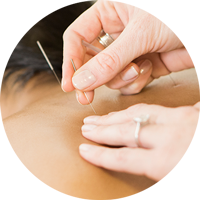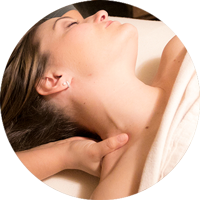What is Acne?
What is Acne?
Acne is a chronic, inflammatory skin condition that can develop on the face or body when pores or hair follicles become plugged with oils, bacteria and dead skin cells.
While acne occurs mostly during puberty, it can happen at anytime. General acne and blemishes are most associated with a lack of proper skin care. However, acne is often a symptom of an imbalance or a more systemic underlying health condition that can be best treated with functional medicine.
Schedule an Appointment
The forms of general acne conditions include:
- Whiteheads – A pale or white-topped blemish
- Blackheads – A sebum, or oily secretion of the sebaceous glands that plugs a pore causing a darkened appearance
- Pimples – Tender red bumps
- Cysts – Large, red breakouts that can lead to pain and infection
- Nodules – Severe acne that forms in the deeper skin tissue and can take longer to clear up
- Pustules – Bumps that contain pus
- Papules – A small red bump that often turns into a pustule
Causes of Acne
So what causes acne? While there isn’t always one individual reason, there are several causes that alone, or in combination with one another can lead to chronic acne.
- Excess oil, dead skin cells or bacteria – When there’s extra build up, the pores and hair follicles get plugged and the skin can’t properly breath. Acne, inflammation, redness, pain and infection can develop.
- Hormone fluctuations – Puberty, pregnancy, menopause and other hormone fluctuations can lead to an increase in androgens and oil production. Androgens are male sex hormones like testosterone, but women have them as well.
- Environmental changes – Being exposed to pollution, oil or grease, the sun and humidity can also contaminate the skin to trigger acne breakouts.
- Stress – Chronic stress can lead to an increase in stress hormones like cortisol that can boost sweat and oil production.
- Diet – A diet high in sugar, dairy, processed foods, gluten and foods with a higher glycemic index can also support acne flare-ups by spiking blood sugar and oil production.
Inflammation of the skin is not normal. If you suffer from acne, schedule an appointment to have it seen by a physician, or health care provider.
Treatments for Acne
While conventional acne treatments often start with a topical approach to the skin, Functional Medicine takes a look at the root cause of whatever underlying issue is causing the acne in the first place.
Various factors impact skin health, including nutrition, stress, inflammation, gut health, hormonal balance and stress. Working with a Functional Medicine provider can empower you with comprehensive testing to inform dietary and lifestyle changes that work to eliminate the source of acne and skin issues.
Schedule an appointment with a Functional Medicine provider today to best determine a course of action based on your needs and health for your whole body.






